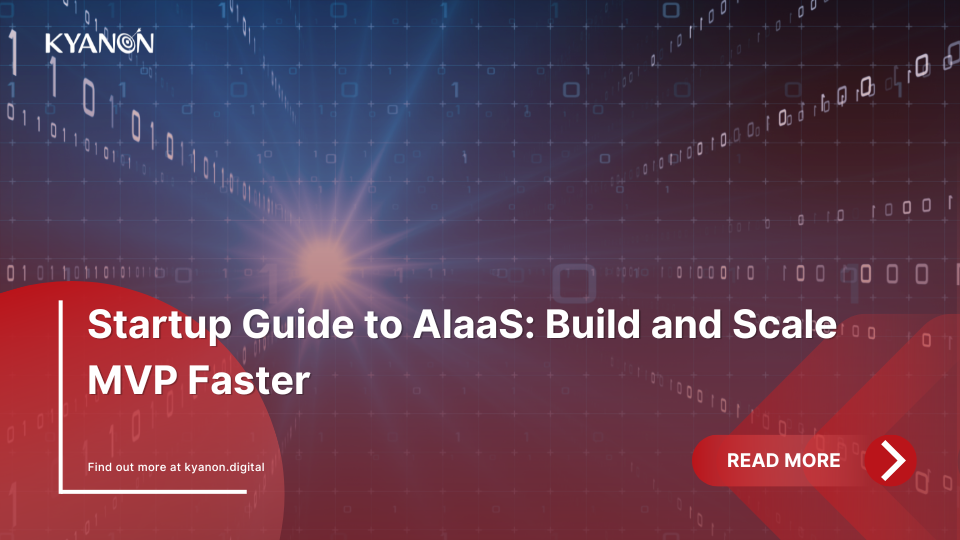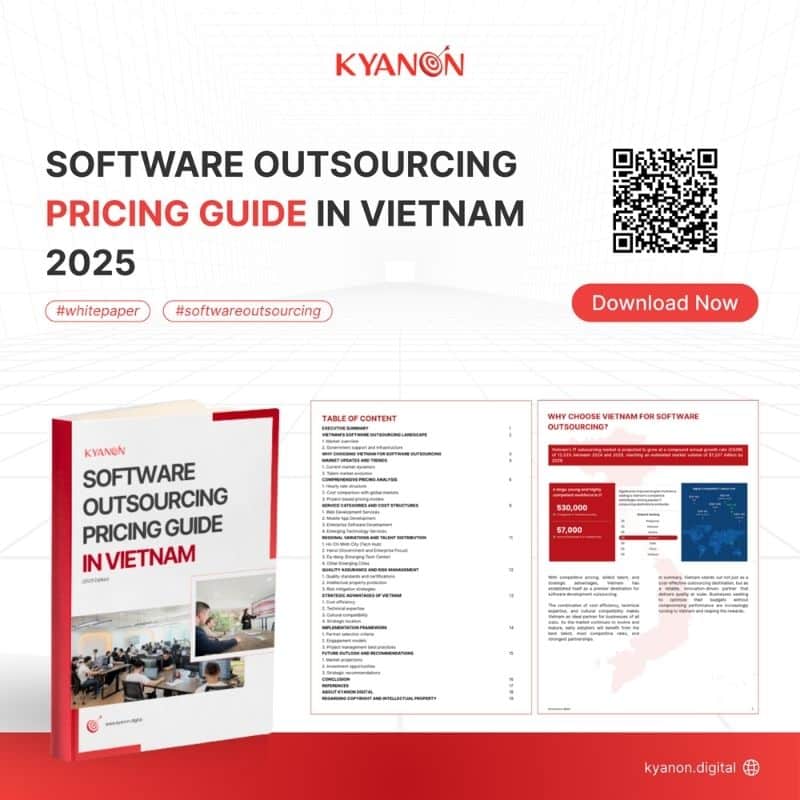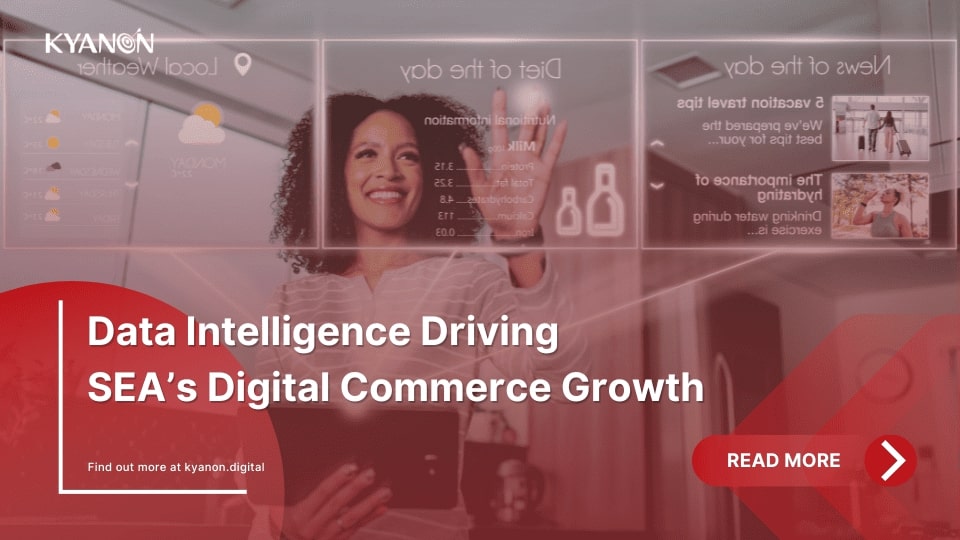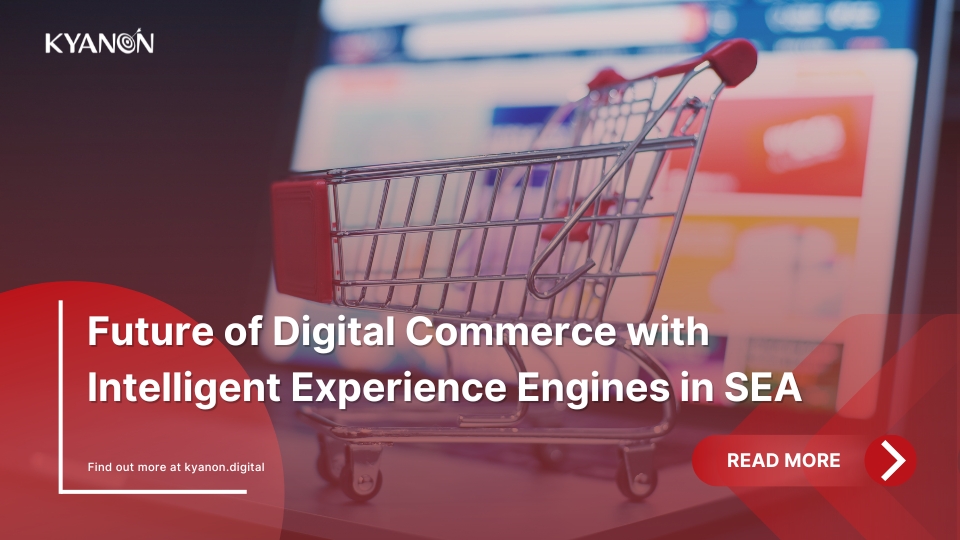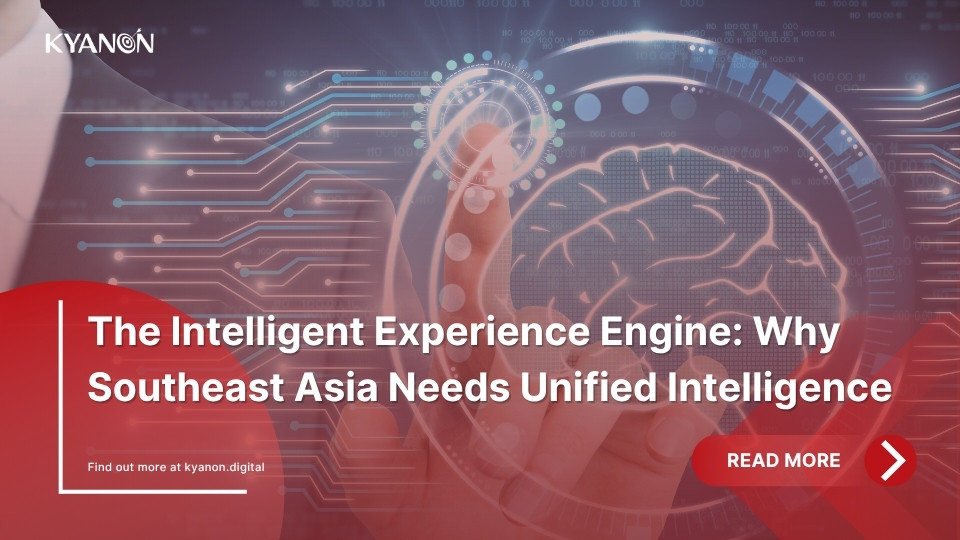The startup landscape is a relentless race against time, resources, and competition. Every decision, every dollar, and every development sprint matters. In this high-stakes environment, leveraging cutting-edge technology isn’t just an advantage—it’s a necessity. Enter AI as a Service (AIaaS), a game-changing paradigm that’s democratizing access to artificial intelligence for nascent businesses.
For years, building robust AI capabilities required significant upfront investment in infrastructure, specialized talent, and lengthy development cycles. This placed AI largely out of reach for many startups. But what if you could tap into the power of sophisticated AI models, pre-built and ready to integrate, without the heavy lifting? AIaaS makes this a reality, offering a lifeline for startups looking to accelerate their Minimum Viable Product (MVP) and scale their solutions with unprecedented agility.
In this comprehensive guide, we’ll dive deep into the world of AI as a Service for startups. We’ll explore what it is, how it works, and why it’s becoming the cornerstone of innovation for agile businesses. We’ll also provide insights into best practices, choosing the right providers, and how to ensure your AI journey is not just fast-tracked, but also sustainable and impactful. If you’re a startup founder aiming to embed intelligent features, streamline operations, or unlock new revenue streams, you’re in the right place.
TL;DR
AI as a Service (AIaaS) lets startups build AI-powered features quickly—without needing in-house AI teams or large infrastructure.
Why it matters:
- Faster MVPs: Pre-built AI via APIs = launch in days
- Lower Costs: Pay-as-you-go model, minimal upfront spend
- Scalable: Elastic infrastructure grows with your startup
- No AI Team Needed: Providers handle setup, training, and maintenance
- More Focus: Free up internal resources to drive product and growth
- Top Use Cases: Chatbots, sentiment analysis, doc automation, fraud detection
Pro Tips:
- Start small with 1 use case
- Monitor cost and performance
- Choose providers that align with your data and stack
- For custom AI, partners like Kyanon Digital offer tailored model development and integration
Further Reading:
- AI MVP development: How to build, launch, and iterate faster
- How to build your own AI model training services
What Is AI as a Service (AIaaS)?
AI as a Service (AIaaS) refers to the provision of ready-to-use artificial intelligence tools, algorithms, and platforms by third-party providers over the internet. Instead of building complex AI models from scratch, startups can subscribe to these services and integrate pre-trained models or AI functionalities directly into their applications, products, or workflows.
The global AIaaS market is projected to reach between $105 billion and $294 billion by 2030–2034, growing at a CAGR exceeding 30%—driven by cloud adoption, automation needs, and the democratization of AI technologies. (GrandviewResearch)
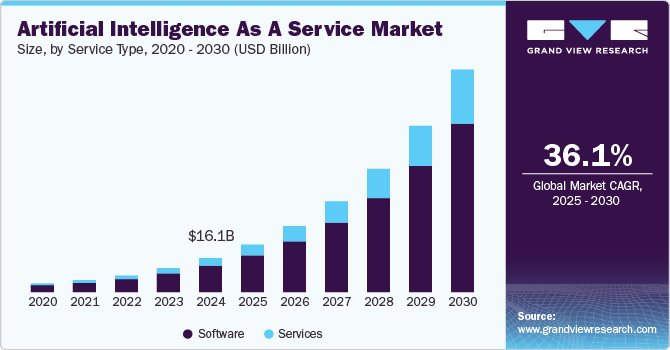
AIaaS shifts the burden of infrastructure management, model training, and updates from the startup to the provider, making advanced AI accessible even to teams without in-house AI expertise.
|
Aspect |
AIaaS (AI as a Service) | In-house AI Development |
| Time to Deploy | Fast – ready-to-use APIs and models, deploy in days | Slow – months needed to hire, build, and train models |
| Cost | Pay-as-you-go, low upfront investment | High – salaries, infrastructure, and long-term maintenance |
| AI Expertise Needed | None – handled by provider | High – requires hiring or upskilling AI engineers and data scientists |
| Infrastructure | Cloud-based, scalable as needed | Requires setup and ongoing management of servers, GPUs, and tools |
| Flexibility | Limited customization (suitable for standard use cases) | Highly customizable for complex, unique business needs |
| Maintenance | Managed by provider (updates, monitoring, retraining) | Must be handled internally, ongoing cost and effort |
| Best For | Startups needing speed, cost-efficiency, and standard AI features (e.g. NLP, vision) | Companies with long-term AI strategy and resources to build proprietary models |
“AIaaS vs In-house” as a comparison table
Transform your ideas into reality with our services. Get started today!
Our team will contact you within 24 hours.
How Does AIaaS Work for Startups?
AIaaS is built for speed, simplicity, and cost-efficiency—perfect for lean startup teams. Here’s how it works:
- API-Driven Access
Startups access AI capabilities via simple APIs. You send in data, get back AI-generated results—no complex setup required. - Pre-trained Models
Most providers offer ready-to-use models trained on massive datasets. You skip the time and cost of building from scratch. - Scalable Cloud Infrastructure
AIaaS runs on cloud platforms that auto-scale as usage grows. No need to manage servers or worry about traffic spikes. - Pay-as-You-Go Pricing
Only pay for what you use—based on API calls or compute time. It’s startup-friendly and budget-flexible. - Maintenance and Updates Included
Providers handle updates, infrastructure, and improvements. You stay focused on your product, not backend AI maintenance.
In 2024, 72% of organizations globally had adopted AI in at least one business function, surging from 55% in 2023 (Statista). Generative AI was used by 65% of organizations, up over 30 percentage points year-over-year (McKinsey)
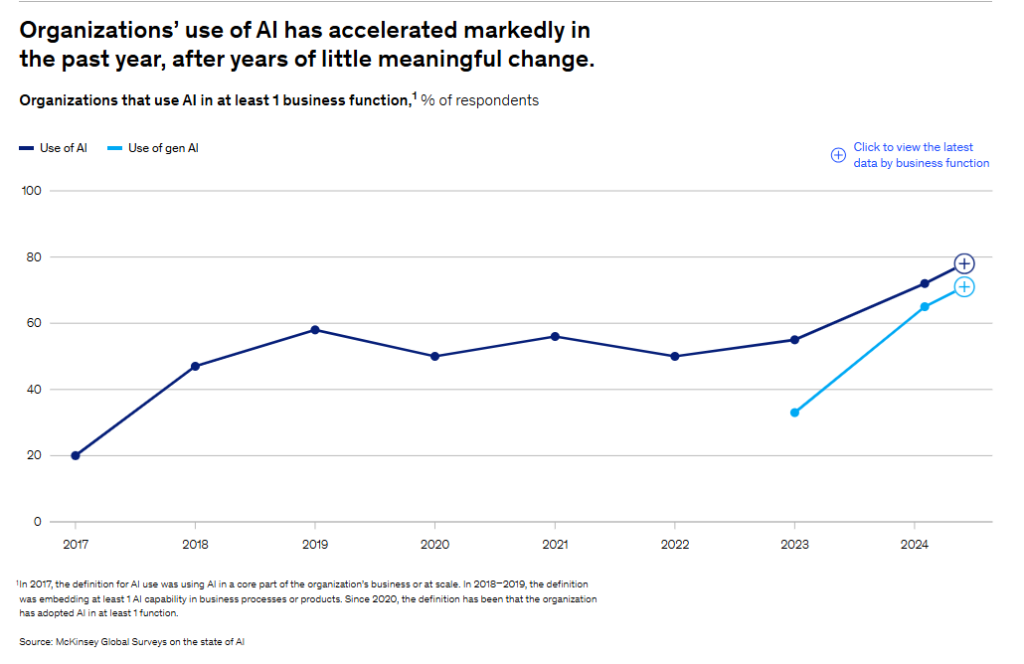
In essence, AIaaS allows startups to “plug and play” sophisticated AI capabilities. This dramatically reduces the time to market for AI-powered features, enabling rapid iteration and deployment, which are critical for gaining a competitive edge.
Why Is AIaaS a Game-Changer for Startups?
AI as a Service (AIaaS) is transforming how startups build, scale, and compete. The table below illustrates how AIaaS delivers value at each critical stage of a startup’s journey—accelerating innovation while minimizing cost and complexity.
|
Stage in Startup Journey |
AIaaS Value Delivered |
Real-World Impact |
| MVP Development | Enables rapid prototyping and deployment of AI features using pre-built models and APIs | Startups can launch MVPs in days or weeks instead of months, accelerating validation cycles. Deloitte: 32% of orgs use AI to speed up R&D and innovation. |
| Budget-Constrained Phase | Eliminates large upfront costs in infrastructure (e.g., GPUs), talent (AI/ML engineers), and data preparation | AIaaS offers a pay-as-you-go model—transforming AI into a predictable OPEX. GrandviewResearch: SMEs benefit from reduced complexity and cost. |
| Limited AI/ML Expertise | Provides plug-and-play AI capabilities without requiring deep knowledge of machine learning or neural networks | AI is democratized; teams focus on solving business problems rather than managing models. McKinsey: AIaaS lowers skill barriers across industries. |
| Early Traction & Iteration | Allows continuous improvement with fast integration of user feedback into AI-enhanced features | Rapid iteration improves user experience and product-market fit while minimizing engineering overhead. |
| Scaling User Base | Supports elastic scaling of AI workloads, automatically adjusting computing resources as demand fluctuates | Seamless performance at any scale — no bottlenecks even with millions of requests. Gartner: AI adoption expected to rise to $478B by 2028. |
| Operational Optimization | Shifts AI infrastructure maintenance, training, and tuning responsibilities to the service provider | Startups stay focused on innovation, go-to-market strategies, and customer engagement. PwC: AI-driven analytics improve efficiency by up to 20%. |
| Global Market Entry | AIaaS often supports multilingual capabilities and global compliance standards | Enables startups to serve international audiences faster without heavy localization investments. |
AIaaS Benefits Across the Startup Journey
By leveraging AIaaS, startups gain immediate access to powerful AI capabilities without the traditional barriers of infrastructure, talent, or scale. It’s not just a tool—it’s a strategic enabler for rapid, cost-effective growth.
Common AIaaS Use Cases for Startups
The versatility of AI as a Service means it can be applied across a wide spectrum of industries and business functions within startups. Here are some of the most common and impactful use cases:
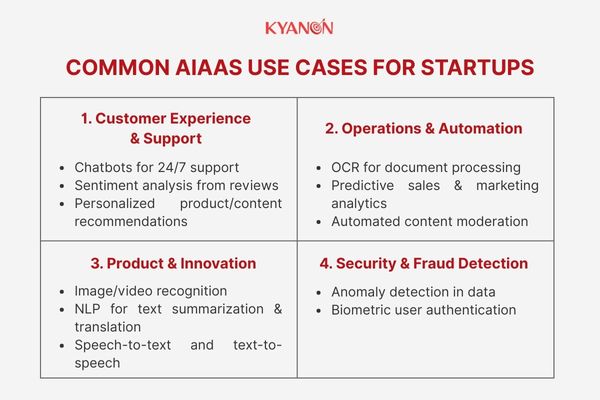
Enhancing Customer Experience and Support
- Chatbots and Virtual Assistants: Integrate pre-trained NLP models to power intelligent chatbots for 24/7 customer support, answering FAQs, guiding users, and even resolving basic issues. This reduces workload on human agents and improves response times. Startups can leverage services like Google Cloud Dialogflow or Amazon Lex.
- Sentiment Analysis: Use AIaaS to analyze customer feedback from reviews, social media, and support interactions to understand customer sentiment. This allows startups to quickly identify pain points, gauge product satisfaction, and prioritize improvements.
- Personalized Recommendations: For e-commerce or content platforms, AIaaS can power recommendation engines that suggest products, services, or content tailored to individual user preferences, increasing engagement and conversion rates.
Streamlining Operations and Automation
- Data Extraction and OCR: AIaaS can automate the extraction of data from documents (invoices, receipts, legal documents) using Optical Character Recognition (OCR) and intelligent document processing. This eliminates manual data entry, reduces errors, and frees up staff for higher-value tasks. Kyanon Digital, for instance, specializes in tailor-made AI solutions for data extraction, crucial for automating back-office processes.
- Predictive Analytics for Sales & Marketing: Leverage AIaaS to predict customer churn, identify sales leads most likely to convert, or forecast demand for products. This enables proactive decision-making and optimized resource allocation.
- Automated Content Moderation: For platforms with user-generated content, AIaaS can automatically detect and flag inappropriate content (e.g., hate speech, spam, explicit imagery), ensuring a safe and compliant environment.
Product Development and Innovation
- Image and Video Analysis: Integrate computer vision AIaaS to enable features like object detection, facial recognition, image tagging, or even video surveillance analysis within your product. This is critical for applications in security, retail, or even creative industries.
- Natural Language Processing (NLP) for Text Analysis: Beyond chatbots, NLP AIaaS can be used for text summarization, language translation, content generation, or analyzing large volumes of unstructured text data for insights.
- Speech-to-Text and Text-to-Speech: Convert spoken words into text for transcription services, or generate natural-sounding speech from text for voice assistants or accessibility features.
Security and Fraud Detection
- Anomaly Detection: AIaaS can monitor network traffic, financial transactions, or user behavior to detect unusual patterns that might indicate security breaches, fraudulent activities, or system malfunctions.
- Biometric Authentication: Integrate AI-powered facial recognition or voice recognition for enhanced security measures and user authentication.
These are just a few examples. The modular nature of AI as a Service allows startups to experiment with different AI capabilities, integrate them incrementally, and build truly intelligent and competitive products.
Best Practices for Startups Adopting AIaaS
Adopting AI as a Service can significantly accelerate your startup’s growth, but a strategic approach is essential to maximize its benefits and avoid common pitfalls. Here are some best practices:
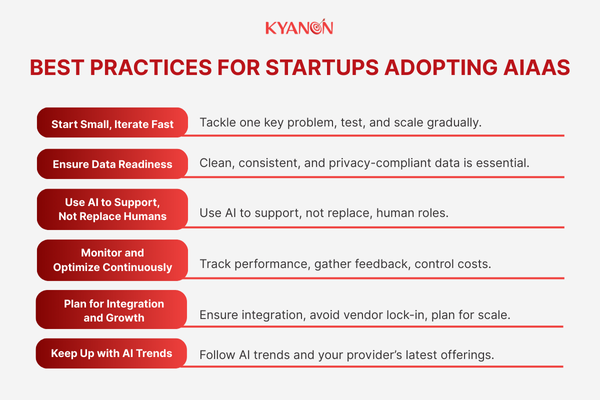
Start Small, Iterate Fast
Don’t try to solve all your problems with AI at once. Identify a single, high-impact problem that AIaaS can address. Implement a minimal AI feature, gather feedback, and iterate. This agile approach allows you to learn quickly, validate your assumptions, and scale your AI efforts gradually. For instance, instead of building a full customer service AI, start with a chatbot for FAQs, then expand its capabilities based on user interactions.
McKinsey identifies that companies seeing the biggest earnings boost from AI are those that iterate quickly and spend efficiently on AI, leveraging cloud technologies
Understand Your Data
Even with pre-trained AI models, the quality of your input data is paramount.
- Data Readiness: Ensure your data is clean, consistent, and in the format required by the AIaaS provider.
- Data Volume: While AIaaS reduces the need for massive datasets for training, you still need sufficient data for testing and validation.
- Data Privacy: Be acutely aware of what data you are sending to the AIaaS provider and ensure it complies with all relevant privacy regulations (e.g., GDPR, CCPA). As of 2024, data privacy regulations are becoming increasingly stringent globally.
Deloitte highlights that regulatory compliance is the primary obstacle for 38% of organizations deploying generative AI
Don’t Treat AI as a Silver Bullet
AIaaS is a powerful tool, but it’s not a magical solution for all problems. Understand its limitations and when human intervention is still necessary. For example, a chatbot can handle routine queries efficiently, but complex or sensitive customer issues often require a human touch. Integrate AI to augment, not entirely replace, human intelligence and processes.
Monitor and Optimize Performance
Once your AIaaS is integrated, continuous monitoring is crucial.
- Track Key Metrics: Monitor API response times, error rates, and the accuracy of AI outputs.
- User Feedback: Collect user feedback on AI-powered features to identify areas for improvement.
- Cost Management: Keep a close eye on your usage and costs to avoid unexpected bills, especially with pay-as-you-go models. Some platforms offer real-time usage dashboards to help manage this.
78% of organizations plan to increase AI spending in the next fiscal year, emphasizing the need for cost control and ROI measurement. (Technology Magazine)
Plan for Integration and Scalability
Before committing, consider how the AIaaS will integrate with your existing technology stack and how it will scale with your growth.
- API Compatibility: Ensure the AIaaS APIs are compatible with your programming languages and frameworks.
- Future-Proofing: While AIaaS handles underlying infrastructure, consider if the provider’s roadmap aligns with your long-term AI strategy.
- Vendor Lock-in: While easy integration is a perk, evaluate the potential for vendor lock-in. Can you switch providers if needed, or will it require a major overhaul?
Stay Updated with AI Trends and Provider Offerings
The AI landscape evolves rapidly. New models, algorithms, and AI as a Service offerings emerge constantly. Stay informed about the latest advancements and how they might benefit your startup. Regularly review your chosen provider’s new features and consider if they can further enhance your product or operations. AI services market is growing rapidly, with a projected CAGR of 18.2% through 2028. (Gartner)
How to Choose the Right AIaaS Provider for Your Startup
Selecting the right AI as a Service provider is a critical decision for your startup. It can significantly impact your development timeline, budget, and the ultimate success of your AI integration. Here’s a detailed guide to help you make an informed choice:
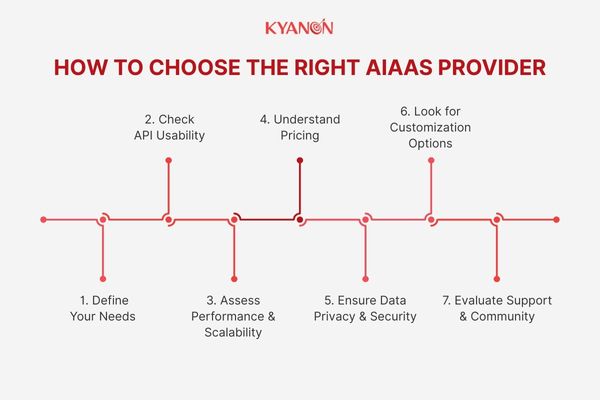
Identify Your Specific AI Needs
Before looking at providers, clearly define what AI capabilities you need. Ask yourself:
- What problem are you trying to solve with AI?
- What specific tasks do you need the AI to perform (e.g., image recognition, natural language processing, predictive analytics)?
- What kind of data will you be feeding the AI?
- What level of accuracy and performance do you require?
For example, if you need intelligent chatbots and data extraction, a provider focusing on tailor-made AI solutions for these areas might be a strong fit.
Evaluate API Simplicity and Documentation
A good AIaaS provider will offer clear, well-documented APIs that are easy for your developers to integrate. Look for:
- Comprehensive Documentation: Examples, tutorials, and clear explanations of API endpoints, parameters, and responses.
- SDKs (Software Development Kits): Available SDKs for popular programming languages can significantly speed up integration.
- Ease of Use: Can your development team quickly understand and implement the AI service without a steep learning curve?
Performance, Accuracy, and Scalability
These are non-negotiable for production-ready AI:
- Accuracy: Does the AI model deliver the level of accuracy required for your use case? Many providers offer benchmarks or demo environments for testing.
- Latency: How quickly does the API respond to requests? Low latency is crucial for real-time applications.
- Scalability: Can the service handle your projected growth in user requests and data volume without performance degradation? In 2024, cloud infrastructure reliability has reached new heights, but still, verify the provider’s SLA (Service Level Agreement) for uptime and performance guarantees.
Pricing Models and Cost-Effectiveness
AI as a Service providers typically offer various pricing tiers. Understand them thoroughly:
- Pay-per-Use: Common for many services (e.g., per API call, per transaction, per unit of data processed).
- Subscription Tiers: Fixed monthly fees with different usage limits or feature sets.
- Free Tiers/Trials: Useful for initial experimentation and proof-of-concept.
- Cost Predictability: Can you estimate your monthly costs based on projected usage? Avoid hidden fees. For startups, controlling variable costs is key.
Data Privacy and Security
Given that you’ll be sending potentially sensitive data to the AIaaS provider, data security and privacy are paramount:
- Compliance: Does the provider comply with relevant data protection regulations (e.g., GDPR, CCPA, HIPAA)?
- Encryption: Is data encrypted in transit and at rest?
- Access Control: What measures are in place to restrict unauthorized access to your data?
- Data Usage Policies: How does the provider use your data? Ensure they don’t use your proprietary data for training their general models without your explicit consent.
Customization and Flexibility
While pre-trained models are convenient, you might need some level of customization:
- Fine-tuning: Can you fine-tune existing models with your specific data to improve accuracy for your niche?
- Model Selection: Does the provider offer a range of models for different tasks, or are you limited to a single option?
- Integration Flexibility: How well does the service integrate with your existing tech stack?
Support and Community
Reliable support is essential, especially when you encounter issues:
- Support Channels: Phone, email, chat, forums.
- Response Times: What are the guaranteed response times for critical issues?
- Community: A strong user community or developer forum can be a valuable resource for troubleshooting and best practices.
By carefully evaluating these factors, your startup can choose an AI as a Service provider that aligns with your technical requirements, budget, and long-term vision.
Top AIaaS Providers & Startup-Friendly Companies
The AI as a Service landscape is dynamic, with both tech giants and specialized firms offering compelling solutions for startups. Here’s a look at some of the leading providers.
General-Purpose AIaaS Giants
These companies offer a broad spectrum of AI as a Service capabilities, often integrated into their larger cloud ecosystems. They are known for their scale, robustness, and comprehensive offerings.
- Google Cloud AI Platform: Offers a vast array of AI services, including Natural Language AI, Vision AI, Speech-to-Text, Text-to-Speech, Translation AI, and advanced Machine Learning tools. Google’s pre-trained models are highly accurate and constantly updated. Their AutoML suite allows for custom model training with minimal code.
- Amazon Web Services (AWS AI/ML): AWS provides a comprehensive suite of AI/ML services like Amazon Rekognition (computer vision), Amazon Polly (Text-to-Speech), Amazon Transcribe (Speech-to-Text), Amazon Comprehend (NLP), and Amazon SageMaker for custom model development and deployment. Their ecosystem is vast, offering deep integration with other AWS services.
- Microsoft Azure AI: Azure offers a strong portfolio of cognitive services, including Vision, Speech, Language, Web Search, and Decision APIs. Azure Machine Learning provides a robust platform for building, training, and deploying custom ML models. Microsoft’s focus on enterprise-grade security and compliance makes it attractive for many startups.
- IBM Watson: IBM Watson provides a range of AI services, including Natural Language Understanding, Discovery, Assistant, Speech to Text, and Text to Speech. Watson is particularly strong in enterprise-level AI and offers pre-trained industry-specific models.
Specialized AIaaS Providers
Beyond the tech giants, many companies specialize in specific AI as a Service niches, often providing deeper insights or more tailored solutions for particular problems.
- OpenAI (via APIs): While known for its research, OpenAI offers powerful AI as a Service through APIs for models like GPT (Generative Pre-trained Transformer) for natural language generation and DALL-E for image generation. These can be transformative for content creation, customer interaction, and more.
- Hugging Face: A rising star in the NLP space, Hugging Face offers a platform for building, training, and deploying transformer models. While more geared towards developers with some ML knowledge, their API for hosted models makes it an increasingly valuable AIaaS option, particularly for text-based applications.
- Twilio (via Segment/Voice/SMS AI): While not purely an AI company, Twilio integrates AI capabilities into its communication platforms, offering services for intelligent routing, sentiment analysis in conversations, and automated responses, critical for enhancing customer engagement.
Kyanon Digital: Your Trusted Partner to Fast-Track AIaaS and Scale Your MVP with Scalable AI
When off-the-shelf AIaaS solutions don’t quite fit your unique business needs, or when you require more bespoke, high-performance AI capabilities, partnering with an expert like Kyanon Digital becomes invaluable.
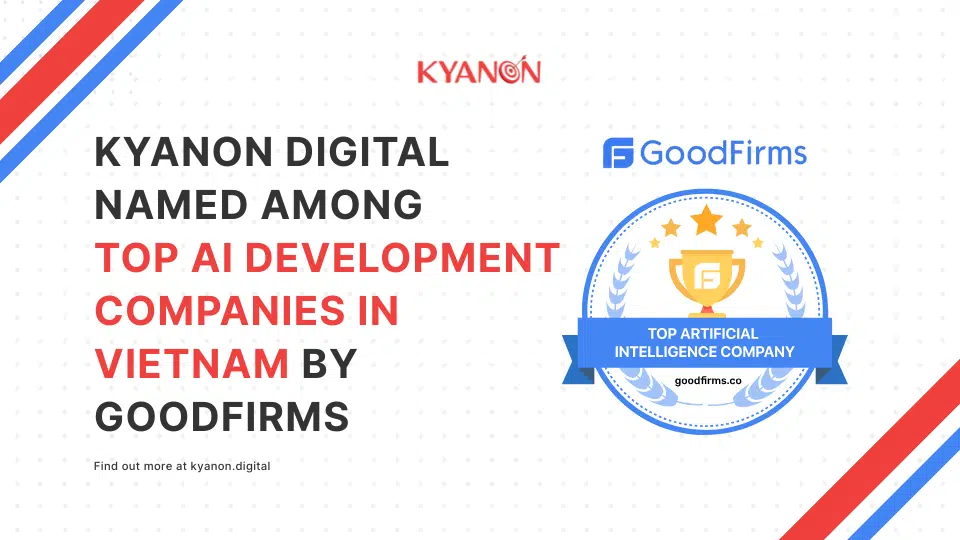
Honored to be recognized by GoodFirms as one of the Top AI Development Companies in Vietnam in 2025, Kyanon Digital stands out as a trusted leader in AI development, delivering tailor-made AI solutions that go beyond generic services. Our expertise covers the entire AI lifecycle, ranging from intelligent chatbots and advanced data extraction tools to sophisticated business automation systems. We don’t just provide an API; we act as your strategic AI model training partner, ensuring seamless performance and long-term value.
What makes Kyanon Digital different?
- Human-Centric Design: We design solutions that are intuitive, impactful, and crafted to solve real-world challenges while enhancing user experiences. This means your AI won’t just be functional; it will be an integral, user-friendly part of your product.
- Engineering Excellence: With our Center of Excellence (CoE) driving innovation, we deliver scalable, reliable, and future-ready digital solutions. We ensure that the underlying AI architecture is robust and built to evolve with your business needs.
- High-performance Agile Teams: Our expert teams seamlessly integrate with yours, combining technical expertise, agile mastery, and transparent collaboration to deliver adaptable, high-impact results. This collaborative approach ensures that the AI solutions are perfectly aligned with your startup’s vision and executed efficiently.

For startups looking to build unique AI capabilities, refine existing models, or require specialized data extraction and automation tools, Kyanon Digital provides the deep insight and hands-on expertise to transform your vision into a high-performing reality. We help you accelerate your MVP development by providing custom AI solutions that are perfectly aligned with your business goals, offering a significant competitive edge in a rapidly evolving market.
References
- Artificial Intelligence As A Service Market Size, Share, and Trends 2024 to 2034, Precedence Research Precedence Research
- AI Adoption and Use Cases in 2024, McKinsey Global Survey on AI, 2024 McKinsey & Company
- Digital Trends 2024: AI and Automation, Deloitte Insights, 2024 Deloitte
- AI Services Market Forecast 2024–2028, Gartner Research, 2025 Gartner
- PwC AI Impact Report 2024, PwC, 2024 PwC
- AI Spending and Trends Report 2025, Deloitte Davos Survey, 2025 Deloitte
- AI Market Growth and Adoption Statistics 2025, Statista, 2025 Statista
- AIaaS Pricing and Usage Trends 2024, Algoscale, 2024 Algoscale
- AI in Cloud Computing Market Analysis 2025, Global Market Insights, 2025 Global Market Insights
- AIaaS Use Cases and Industry Adoption, Mordor Intelligence, 2025 Mordor Intelligence

